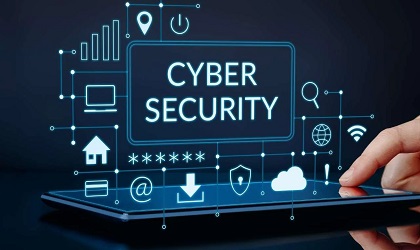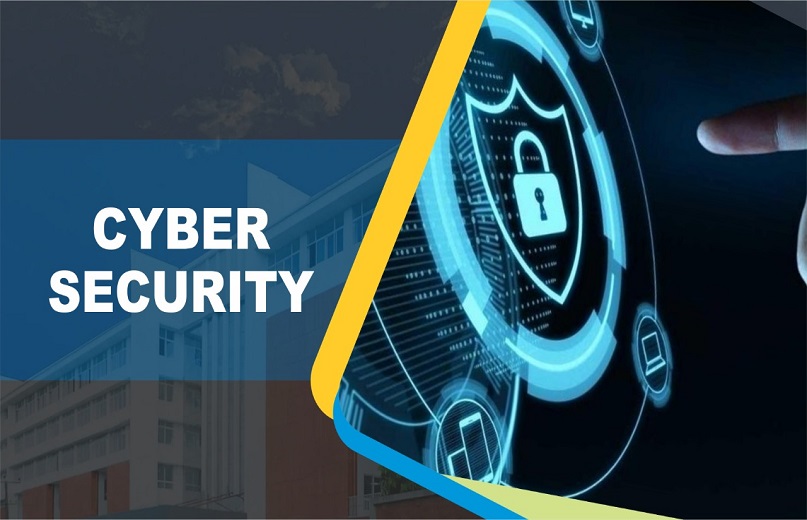The digital landscape in Bangladesh is evolving rapidly, spurred by the increasing adoption of technology across various sectors. From financial services to e-commerce, healthcare, and government operations, almost every industry has embraced digital transformation to improve efficiency and meet the needs of a growing online population. However, this expansion has also exposed the country to cyber threats, making robust cybersecurity measures more important than ever. The rise in data breaches, cyberattacks, and other security risks has created an urgent demand for skilled cybersecurity professionals to protect sensitive information and ensure the integrity of digital transactions. In response to this growing threat landscape, Cyber Security Courses in Bangladesh are becoming increasingly popular, offering specialized training and globally recognized certifications.

These Cyber Security Courses in Bangladesh are designed to address the unique challenges faced by the country while providing learners with skills that align with international standards. As businesses, government agencies, and individuals become more dependent on digital systems, the need for cybersecurity professionals has never been greater. Protecting sensitive financial data, ensuring the security of e-government services, and preventing cyber crime in small businesses are just a few examples of where experts are needed. In this context, Cyber Security Courses in Bangladesh have emerged as a key driver in building a skilled workforce capable of defending against evolving cyber threats.
Why Cyber Security Courses in Bangladesh Are Crucial
Cybersecurity is no longer just a technical issue handled by IT departments; it has become a core function of businesses, organizations, and government institutions worldwide. Protecting sensitive information, ensuring the security of digital communications, and maintaining the integrity of financial transactions are critical components of modern business operations. In Bangladesh, this shift toward digital business models has made cybersecurity a top priority for organizations of all sizes.
The growing reliance on digital platforms, mobile technologies, and cloud computing has introduced new vulnerabilities. From ransomware attacks to data breaches and phishing schemes, cyber threats are becoming increasingly sophisticated. Cyber criminals target businesses of all sizes, seeking to exploit weak points in their security infrastructure. These risks highlight the urgent need for skilled professionals who can effectively identify, prevent, and respond to cyber threats. Cyber Security Courses in Bangladesh play a crucial role by providing individuals with the technical expertise needed to stay ahead of cyber criminals and protect critical digital assets.
The importance of Cyber Security Courses in Bangladesh extends beyond protecting businesses and government agencies. As more people engage in online transactions, use mobile banking apps, and access cloud-based services, personal data has become a valuable target for cyber criminals. Cybersecurity training equips professionals to protect both organizational and individual data, making the digital environment safer for everyone.
Overview of Cyber Security Courses in Bangladesh
Cyber Security Courses in Bangladesh are available in various formats, catering to different learning preferences and professional needs. From short-term certificate programs to full-fledged bachelor’s and masterâs degree courses, learners can choose options based on their career goals. These courses are offered by universities, technical institutes, and private training centers, both in-person and online, providing flexibility for students and working professionals alike.
Diploma and Certificate Programs
For individuals looking to quickly gain foundational cybersecurity skills, diploma and certificate programs are an excellent choice. These programs are typically shorter in duration and focus on core cybersecurity topics such as network security, ethical hacking, cyber forensics, and risk management. They are designed to provide hands-on training, allowing students to develop practical skills that can be immediately applied in real-world settings. Institutions like Daffodil International University and Bangladesh University of Professionals (BUP) offer Cyber Security Courses in Bangladesh that focus on these areas.
These diploma and certificate programs are ideal for individuals wanting to enter the cybersecurity field quickly or for IT professionals looking to enhance their skill sets. Many programs include practical labs where students can work on real-life scenarios, testing their knowledge in simulated environments. This hands-on experience is invaluable for those seeking entry-level positions in the cybersecurity industry.
Bachelorâs Degree in Cybersecurity
A bachelor’s degree in cybersecurity offers a more comprehensive exploration of the field. Several universities in Bangladesh now offer Cyber Security Courses in Bangladesh at the undergraduate level. These programs cover essential topics like cryptography, secure software development, information security management, and cyber law. Students are also introduced to advanced topics such as cloud security, penetration testing, and secure system design.
Typically lasting four years, a bachelor’s degree program prepares students for a wide range of career opportunities in cybersecurity. Graduates are equipped to work as cybersecurity analysts, penetration testers, network security engineers, and security consultants. The academic rigor of these programs ensures that students develop not only technical expertise but also critical thinking skills, enabling them to solve complex security challenges.
Universities like BRAC University and AIUB (American International University-Bangladesh) are leading the way in offering high-quality Cyber Security Courses in Bangladesh at the undergraduate level. These programs emphasize industry collaboration, providing students with internship opportunities and exposure to real-world cybersecurity challenges.
Masterâs Degree in Cybersecurity
For professionals wanting to deepen their knowledge and specialize in specific areas of cybersecurity, a masterâs degree is an excellent option. Universities like AIUB and BRAC University offer Cyber Security Courses in Bangladesh at the graduate level, focusing on advanced topics such as incident response, security governance, cyber defense strategies, and security risk management.
Typically designed for individuals with prior experience in cybersecurity or IT, these programs equip students with both technical training and strategic thinking skills. Graduates learn to develop cybersecurity policies, manage teams, and contribute to organizational decision-making processes. Many master’s programs also include research components, allowing students to contribute to new cybersecurity solutions.
Graduates of masterâs degree programs are well-prepared for senior roles such as Chief Information Security Officer (CISO), cybersecurity architect, or cyber risk manager. The specialized knowledge gained can also open doors to consultancy roles, where professionals advise organizations on their cybersecurity strategies.
Professional Certifications
For IT professionals already working in the field and looking to validate their skills or specialize in a particular area, professional certifications are an ideal choice. Organizations in Bangladesh offer several globally recognized cybersecurity certifications, including Certified Ethical Hacker (CEH), Certified Information Systems Security Professional (CISSP), and CompTIA Security+. These certifications are highly valued by employers and demonstrate a professionalâs expertise in specific areas of cybersecurity.
Cyber Security Courses in Bangladesh that offer these certifications provide intensive training focusing on practical, real-world applications. For example, the CEH certification focuses on ethical hacking techniques, while CISSP covers a broad range of topics related to security management, risk analysis, and compliance. CompTIA Security+ is ideal for those just starting in the field, providing foundational knowledge in areas like network security, compliance, and operational security.
These certifications not only enhance a professionalâs credentials but also improve their job prospects and earning potential. Employers in both the public and private sectors actively seek professionals with these certifications, as they demonstrate a commitment to staying current with the latest cybersecurity trends and techniques.
Online Courses and Bootcamps
For those preferring self-paced learning or seeking flexible options, online Cyber Security Courses in Bangladesh are an excellent alternative. Platforms such as Coursera, Udemy, and local e-learning providers offer a wide range of courses catering to different expertise levels. From basic cybersecurity awareness to advanced ethical hacking techniques, these platforms allow learners to gain knowledge at their own pace.
Bootcamps are another popular option for those seeking intensive, short-term training. These programs provide practical, hands-on experience in a compressed timeframe. Bootcamps focus on specific areas of cybersecurity, such as penetration testing, cloud security, or incident response, and are ideal for professionals looking to upskill quickly.
Key Skills Covered in Cyber Security Courses in Bangladesh
The curriculum of Cyber Security Courses in Bangladesh covers a wide array of critical topics, ensuring that students are well-prepared to tackle security challenges in their careers. Some key skills and knowledge areas include:
- Network Security: Understanding how to protect networks from unauthorized access, attacks, and breaches is a core component of most cybersecurity courses. Students learn about firewalls, intrusion detection systems, and secure network architecture.
- Ethical Hacking: Courses in ethical hacking teach students how to identify and exploit system vulnerabilities, improving overall security. This hands-on skill is critical for penetration testers and security analysts.
- Cyber Forensics: Involving the investigation and analysis of cyber crimes, students learn how to collect and preserve digital evidence, reconstruct attacks, and identify perpetrators.
- Cryptography: Understanding encryption techniques used to secure data and communications is another essential skill taught in cybersecurity courses. Cryptography plays a vital role in protecting sensitive information.
- Security Governance: Cybersecurity is not just about technology; it also involves managing risks and complying with regulations. Students learn about the policies, standards, and regulations governing cybersecurity practices.
- Incident Response: In the event of a security breach, quick and effective response is crucial. Courses in incident response teach students how to minimize damage, recover from attacks, and prevent future incidents.
Importance of Cyber Security Courses in Bangladesh
As Bangladesh continues to embrace digital technologies, the importance of cybersecurity training becomes even more apparent. The rise of cyber threats targeting businesses, government agencies, and individuals means an urgent need for a skilled cybersecurity workforce. Cyber Security Courses in Bangladesh play a critical role in developing this workforce, ensuring that the country is well-equipped to defend its digital infrastructure.
These courses foster a security-conscious mindset among learners, essential in today’s digital age. As cyber threats evolve in complexity and scale, a proactive approach to cybersecurity is crucial. They not only provide the knowledge needed to defend against current threats but also prepare professionals to anticipate and respond to future challenges. By creating a culture of cybersecurity awareness, these educational programs contribute to making businesses and individuals more resilient to cyberattacks.
Moreover, investing in cybersecurity education will significantly impact Bangladeshâs economic development. As businesses and government institutions rely more heavily on digital infrastructure, cybersecurity becomes vital for maintaining trust in digital transactions. A well-trained cybersecurity workforce will ensure that Bangladesh can continue to attract foreign investment, support innovation, and expand its digital economy without fear of crippling cyber attacks.
Summary
As Bangladesh’s digital landscape grows, the demand for robust cybersecurity measures becomes increasingly critical due to rising cyber threats and attacks. Cyber Security Courses in Bangladesh are essential for equipping individuals with the necessary skills to protect sensitive data and digital transactions. These educational programs, ranging from diplomas to advanced degrees and professional certifications, address the countryâs unique cybersecurity challenges and foster a proactive security mindset.
Investing in cybersecurity education is crucial for ensuring the long-term security of Bangladeshâs digital economy, maintaining trust in digital systems, and attracting foreign investment. Overall, Cyber Security Courses in Bangladesh play a vital role in developing a skilled workforce capable of combating cyber threats and securing the nationâs digital future, making meaningful contributions to its economic growth and stability.



